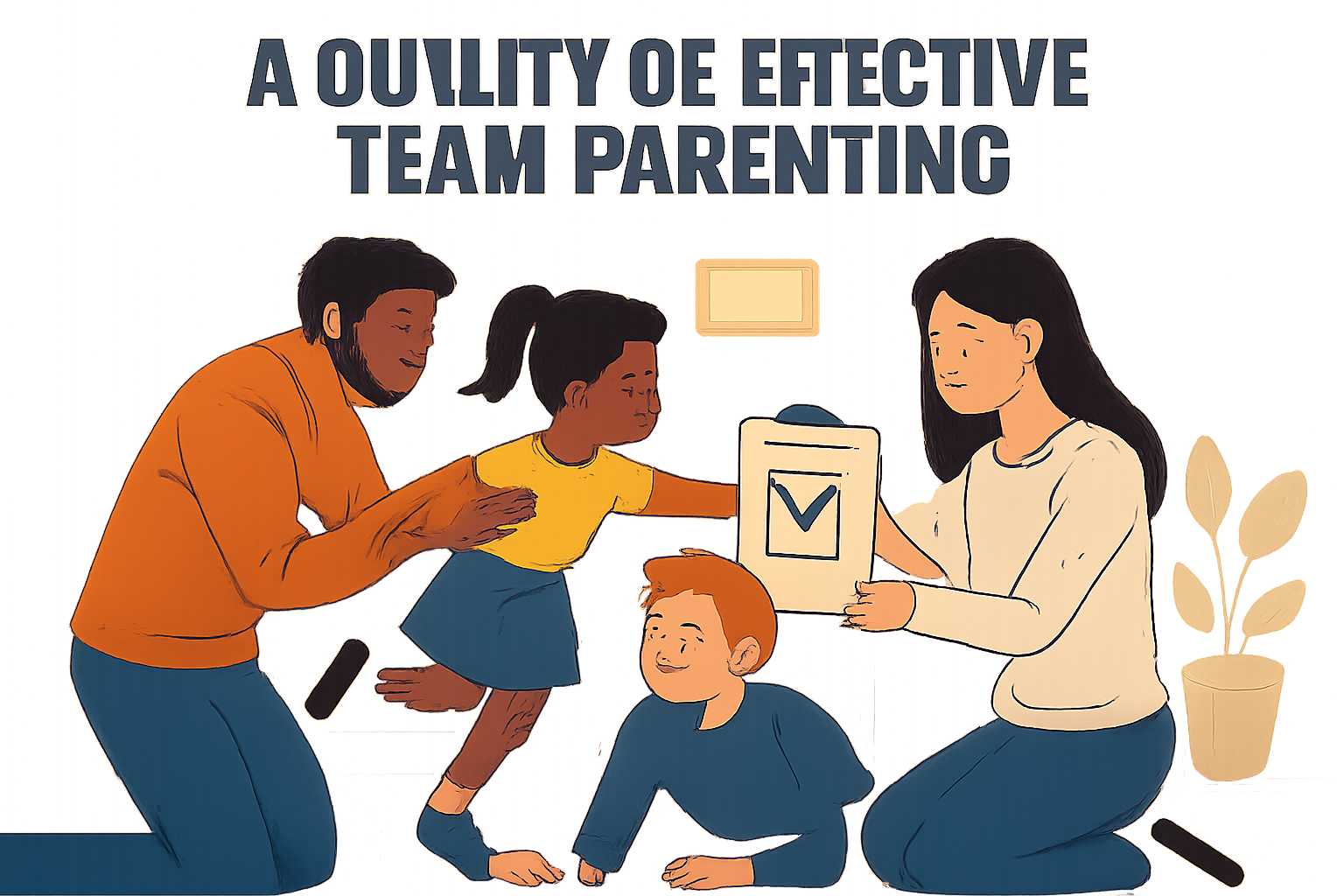which behavior describes a quality of effective team parenting?
Team parenting is a challenge by nature. When multiple adults share responsibility for raising children—whether in blended families, co-parenting after separation, or communal households—success depends on more than good intentions. So, which behavior describes a quality of effective team parenting? In short: consistent, open communication.
Let’s break down why this matters, and what it looks like in practice.
Consistency in Expectations and Discipline
Kids thrive on consistency. If each parent or caregiver enforces different rules or discipline strategies, confusion can set in. Effective team parenting means discussing expectations in advance, and presenting a united front. For example: if bedtime is 8:30 p.m., everyone enforces it. If homework comes before screen time, that policy stands—no matter who’s at home that evening.
Consistency doesn’t mean rigidity. It means adults talk through house rules, agree on core boundaries, and stick to them. This prevents children from “parent shopping” for the answer they want, and it builds trust in parental authority.
Open and Ongoing Communication
Open communication isn’t just about logistics. Sure, calendars should be shared and plans coordinated. But effective team parenting digs deeper. Regular check-ins—whether in person or via group chat—help surface concerns, celebrate wins, and address problems early.
Listening is as important as speaking. Each caregiver brings unique insights and concerns. Making space for everyone to contribute fosters an environment where no one feels sidelined, and kids get support from a fully-informed team.
Mutual Respect Among Adults
Disagreements will happen, but how adults handle conflict models important behavior for kids. Effective team parenting means disagreeing respectfully in private, not undercutting each other in the moment. Backing up one another, even if a private conversation about differences needs to happen later, prevents confusion for children and maintains clear authority lines.
Mutual respect is also about recognizing that each adult may have different parenting strengths. One person might be more patient with homework, another better at mediating sibling squabbles. Embracing these differences makes the parenting team stronger.
Flexibility and Willingness to Adapt
No plan survives contact with reality—especially with children in the mix. Effective team parenting requires flexibility. Plans change, kids’ needs evolve, and adults’ schedules can shift. Adapting together and staying solution-focused keeps resentment at bay and helps the whole household run more smoothly.
Pros and Cons of Team Parenting
Pros
- Shared responsibilities can reduce stress and burnout
- Children benefit from diverse perspectives and skills
- Support system in place for big and small challenges
Cons
- Miscommunication can lead to mixed messages for kids
- Personality clashes may require extra effort to navigate
- More adults means more negotiation and compromise
Practical Tips for Effective Team Parenting
- Set regular, short meetings to coordinate and troubleshoot
- Document key agreements about routines and discipline
- Check in with the kids about how they feel the system is working
- Stay open to tweaking strategies as family needs change
In summary, when asking which behavior describes a quality of effective team parenting, the answer is clear: prioritize consistent, open communication—and build from there. The work isn’t always easy, but the payoff is a stronger, more supportive environment for everyone involved.
Timothy R. Richmond, the skilled copywriter at MetaNow Gaming, is a driving force behind the diverse gaming content and community interaction on the platform. With a passion for storytelling in the gaming world, Timothy weaves narratives that resonate with the gaming community. His dedication to creating engaging and inclusive content makes MetaNow Gaming a vibrant hub for gamers seeking more than just news and reviews. Join Timothy on the journey at MetaNow Gaming, where his words contribute to a rich tapestry of diverse gaming experiences, fostering a sense of community and shared enthusiasm within the gaming universe.





